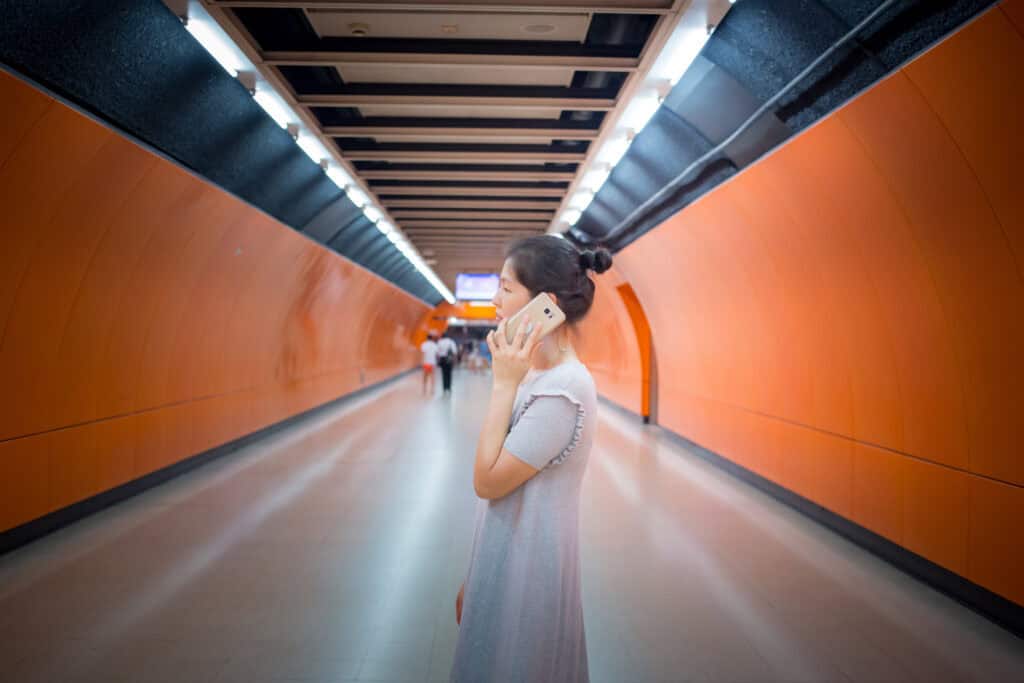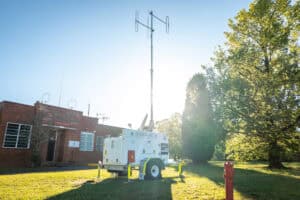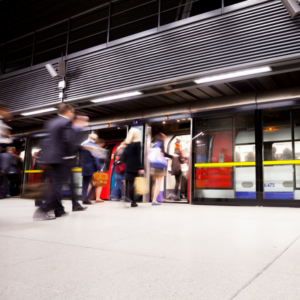The company has a long track record of successful projects in private mobile radio, public safety, cellular and Wi-Fi communications networks across the Hong Kong underground and light rail systems. Cellular and free Wi-Fi connectivity in all MTR stations is helping Hong Kong travellers to benefit from staying connected, increasing their productivity and supporting their personal lives. As the transport system continues to expand and demand for ever-better services rises, BAI is dedicated to providing state-of-the-art technology and deploying it safely and on-time.
Key challenges solved:
- Restricted time for installation work: With often just a few overnight hours available for trackwork, BAI applies innovative work practices and equipment as well as flexible planning to achieve on-time deployment of infrastructure.
- Tough working environment: Dedication from BAI installation engineers to reach and work in hard-to-access locations.
- Solving the need for more advanced services: BAI applies the technology to provide better communications services for passengers and to support advances such as automated driverless trains.
Delivering communications for cellular, Wi-Fi and public safety users
Since opening in 1979, Hong Kong’s MTR Corporation has grown into one of the world’s busiest urban transport systems, with more than 220km of rail, 90 railway stations and 68 light rail stops. The company has a long track record of successful projects in private mobile radio, public safety, cellular and Wi-Fi communications networks across the Hong Kong underground and light rail systems. As an MTR-approved partner for more than 20 years, BAI has helped deploy private mobile radio, public safety, cellular and Wi-Fi communications networks across the underground and light rail systems in Hong Kong. Mobile and public safety connectivity services are provided by three mobile network operators, while all Mass Transit Railway stations feature a free Wi-Fi service for passengers. BAI services include project management, design, supply, installation, testing, commissioning, and maintenance.
Dedication and innovation get the job done
Hong Kong’s geography and the harsh environment typical of underground systems create extremely tough working conditions. At one site on the West Island Line, BAI had to install equipment to cover an exit on a steep slope. Installation staff had to climb 20 storeys (multiple times a day) to access the site, often carrying test equipment. At another site, where equipment was being installed on the roof of a high-rise building, contractors had to carry a 7-metre antenna up 35 storeys using the stairwell because it would not fit inside the lift.
In addition, there is intense time pressure on BAI. Work in tunnels and many other areas is prohibited until train services stop at 1:00am, often resuming at 4:00am. Any work that BAI carries out must not impact next-day train operations. Fitting the required work into the short timeslot can be challenging, especially when up to 50 minutes can be taken to simply walk through the tunnel to the work location. BAI has applied innovative thinking to improve such situations. It uses lightweight RF test tools weighing 3-4kg instead of conventional tools weighing 20kg, and which still deliver the same accuracy. This allows engineers to get to work sites more quickly.
A further example of BAI innovation is its use of a novel platform ladder for safe working at height. Lightweight and easy to carry, the platform eliminates the time-consuming construction of scaffolding conventionally used, creating a time-saving of around 30%.
Advanced technology to meet future demand
The success of BAI’s projects has given the company a reputation as a proactive and flexible contractor that continuously finds new ways to improve project delivery and create better technical solutions.
BAI adopts a modular design for its systems, simplifying maintenance and future expansion. Deployed components are wideband and will support foreseeable future spectrum allocations. If the network undergoes an upgrade, the changes will be minimal, with low costs and little impact on underground services.
BAI is also introducing state-of-the-art communications technology. Recently BAI deployed a Distributed Antenna System (DAS) with Multiple Input Multiple Output (MIMO) technology on an extension of the West Island Line underground. The extension comprises three new stations connected by about 3km of tunnels. The network delivers up to maximum 600Mbps data rates per mobile user.
Safeguarding driverless train operations
In another advance, BAI communications technology is supporting fully automatic driverless trains on the South Island Line, which opened at the end of 2016. BAI built the communications infrastructure to provide real-time video surveillance of the track ahead and the carriages to the control centre. The connectivity also supports the onboard helpline system for passengers. The CCTV is connected to the train’s alarm management system. Alarms, for example from smoke detectors or door sensors, automatically trigger the video system to pan across the area, providing video of any incidents and raising an alert in the control centre.
BAI’s high quality wins awards
Recognition of BAI’s high quality work has come in the form of multiple MTR awards, competing against more than 100 contractors. In 2015, BAI won a Gold Quality Award for the MTR West Island Line and South Island Line radio systems.
The cellular system for the West Island Line was completed within a five-day turnaround to cover back-of-house areas for the grand opening, while the Fire Services Department radio system at South Island Line was reconfigured to allow for early inspection. BAI won further MTR quality awards in 2013 and 2016. Successfully delivering multiple MTR extension projects over two decades shows BAI to be a trustworthy and effective partner for the transit authority. The company attributes its success to excellent relationships between BAI and the MTR personnel at all levels, a dedicated and highly experienced engineering team, and a willingness to offer new technology to meet project requirements.
*BAI Communications is now Boldyn Networks in the Northern Hemisphere.







